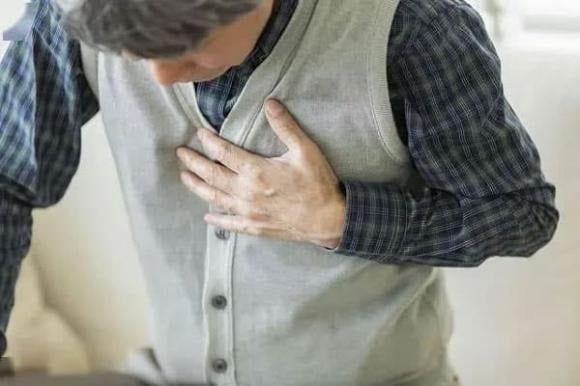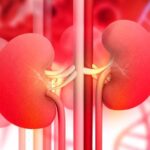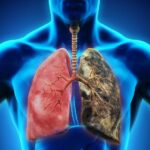Fatigue When Walking – A Subtle Sign of Early-Stage Lung Cancer
When we think of early-stage lung cancer, shortness of breath or chest tightness often come to mind. However, there’s a less obvious sign that many overlook: sudden fatigue when walking. If you used to navigate stairs or brisk walks with ease but now find yourself winded, weak, and in need of frequent rest, your lungs may be sending you a message.
Don’t attribute these symptoms to aging or lack of exercise just yet. This “walking fatigue” is often a warning sign from your lungs, indicating a potential blockage in the airways, resulting in reduced oxygen intake. Consequently, you feel weak and tired due to oxygen deprivation in your body.
Consider the case of a construction worker who could work tirelessly all day but started experiencing shortness of breath when carrying cement to upper floors. Upon examination, a doctor discovered a tumor in his lungs.

Research suggests that over 20% of early-stage lung cancer patients experience a decline in health months before diagnosis, yet they often fail to recognize these warning signs. This weakness is not a result of aging but rather the lungs’ inability to efficiently exchange oxygen.
Interestingly, many people experiencing fatigue try iron, ginseng, or herbal supplements to boost their energy, but to no avail. The root cause lies in the lungs; no amount of supplementation will help if your body is deprived of oxygen.
While these symptoms don’t always indicate lung cancer, it’s crucial to be vigilant. Lung cancer may not cause coughing but can leave you breathless and exhausted with minimal exertion.
Dysphagia – An Unsuspected Symptom
Aside from fatigue, another unexpected sign of lung cancer is difficulty swallowing, especially dry or solid food. The sensation of having something stuck in your throat, without pain or swelling, could indicate lung cancer.
When a tumor develops near the hilum of the lung or in the mediastinum, it can compress the esophagus or recurrent laryngeal nerve, making swallowing difficult and possibly altering your voice.
A chef who experienced difficulty swallowing and choking when drinking water initially thought he was eating too fast. However, months later, he was diagnosed with lung cancer, and the tumor was found to be pressing on his esophagus.
Lung cancer can lead to dysphagia or hoarseness, especially in central lung cancer patients. Typically, people only examine the throat or esophagus without considering the lungs. However, as the lungs are in close proximity to the trachea, esophagus, and throat, a growing tumor can affect multiple organs in this area.
So, if you’re experiencing swallowing difficulties without throat inflammation or pain, don’t solely blame the esophagus. Sometimes, the real issue originates in the lungs.
Night Sweats – More Than Just Discomfort
Night sweats are common and often attributed to physical exhaustion or hormonal imbalances, especially in middle-aged individuals. However, if you’re not going through hormonal changes and experience sudden and excessive night sweats, it could be a red flag. This may be a sign of inflammation caused by a lung tumor or its impact on the autonomic nervous system, triggering a whole-body response.

Lung cancer isn’t just about breathing difficulties; it’s a systemic disease that can manifest in surprising ways. Consider an office worker who never felt exhausted at work but recently started waking up in the middle of the night, drenched in sweat for no apparent reason. A health check-up revealed lung damage and a tumor releasing cytokines, causing hormonal imbalances.
Research indicates that many early-stage lung cancer patients, particularly those with small cell lung cancer, exhibit “non-respiratory” symptoms like night sweats and fatigue. These signs are often misdiagnosed, leading to delayed treatment.
It’s important to note that these night sweats aren’t due to overdressing, high temperatures, or excessive exercise but rather have no apparent cause. If you find yourself suddenly soaked in sweat at night, it could indicate an underlying issue that warrants attention.
Clubbed Fingers – An Unsuspected Red Flag
When people notice changes in their fingernails, they often assume it’s a nutritional deficiency and supplement with zinc or calcium. However, a less known early sign of lung cancer is “drumstick fingers.” This condition causes fingernails to curve upward, thicken, and the fingertips to round and resemble drumsticks.
While it’s not painful or itchy, it indicates prolonged oxygen deprivation in the body, which could be due to lung issues. A delivery man noticed his fingernails thickening and becoming hard and puffy, attributing it to his work. However, a check-up revealed early-stage lung cancer.
Studies show that “drumstick fingers” occur in some lung cancer patients before diagnosis, especially those with non-small cell lung cancer and central tumors. While this change might seem like a mere fingernail issue, it reflects oxygen deprivation in the blood, which happens when the lungs struggle to efficiently exchange oxygen.
If your fingernails suddenly thicken, curve, and cause your fingertips to round, don’t jump to conclusions about malnutrition or vitamin deficiencies. Instead, check your blood oxygen levels and consider a lung X-ray.
Conclusion
Fatigue when walking, dysphagia, night sweats, and clubbed fingers – while these symptoms may not seem lung-related, they can be early warning signs of lung cancer. It’s crucial to recognize these signals and undergo regular health check-ups for early detection. Early-stage lung cancer can go unnoticed, but by understanding your body’s “secret language,” you can take timely action.
8 Warning Signs of Lung Cancer You Shouldn’t Ignore
“Be Alert and Vigilant: These Signs Could Point to Lung Cancer”
A subtle yet persistent cough, a change in your breathing, or unexpected weight loss could be indicators of a deeper issue. It’s time to pay attention and be vigilant about your health. Don’t ignore these warning signs and take charge of your well-being.
8 Warning Signs of Cancer: Be Sure to Get Checked if You Experience Any of These
The following symptoms are red flags indicating the possibility of cancer. It is imperative to seek medical attention and undergo necessary tests to confirm or rule out the presence of this life-threatening disease. Early detection can significantly improve the chances of successful treatment and a positive prognosis.



































